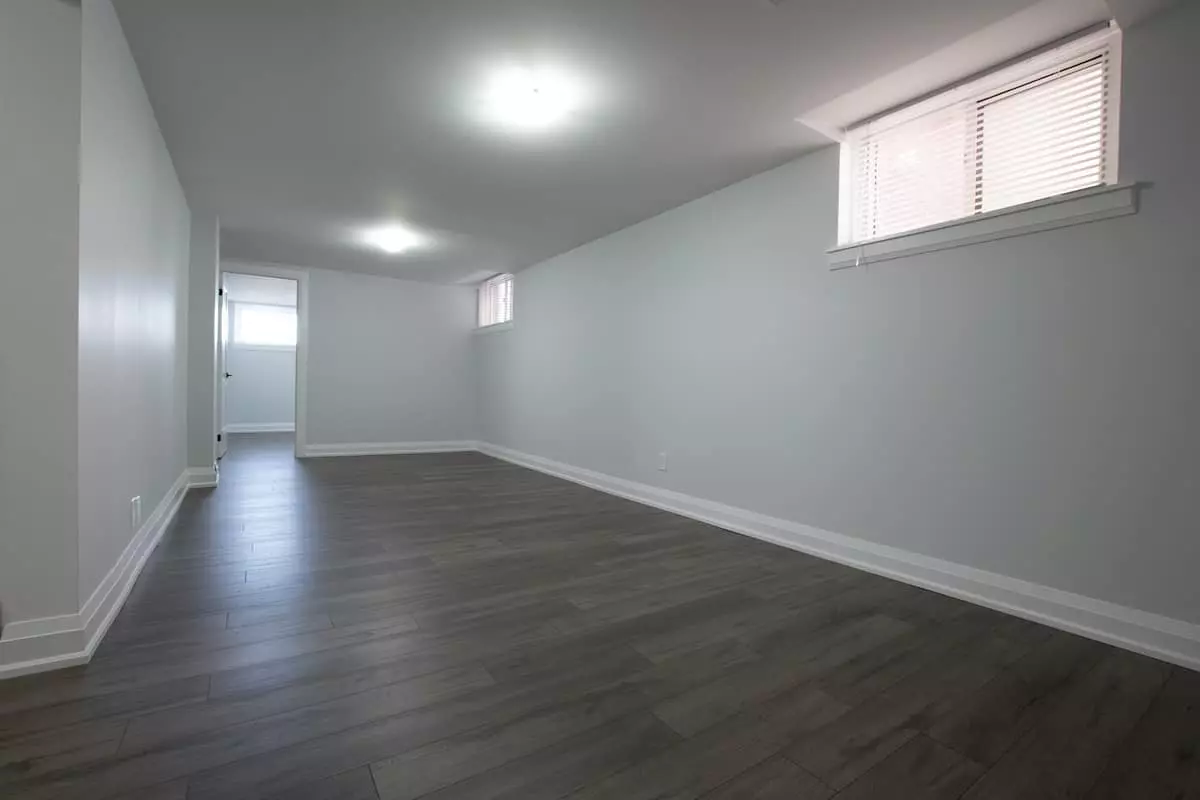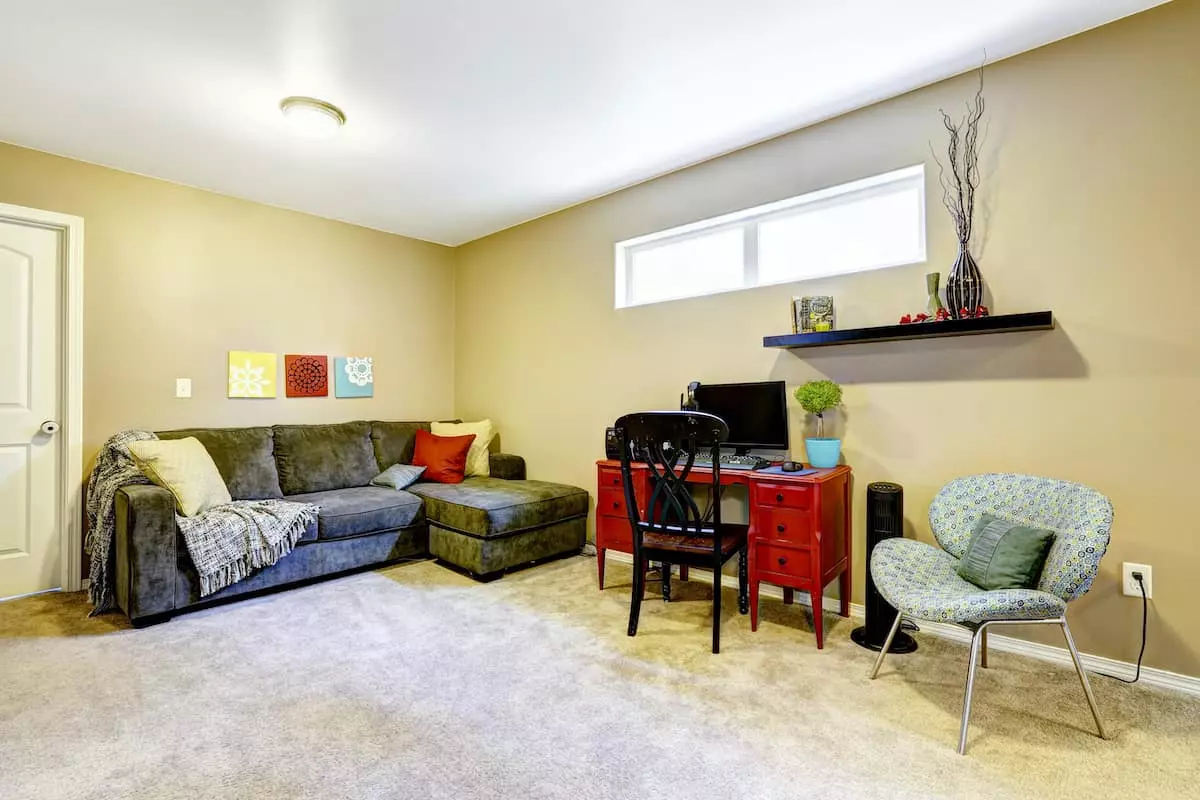Living in a high-rent city can be a challenge, but there is a solution that offers affordability without compromising on comfort - basement apartments. Before you make the decision to move underground, it's important to be aware of all the key facts. In this comprehensive guide, we'll explore everything you need to know about basement apartments and help you make an informed choice.
What exactly is a basement apartment?
A basement apartment is a living space that is partially or fully located underground. Although the concept remains the same, different cities may have their own terms for these types of accommodations. For instance, in older cities like Washington, D.C. and New York, partially underground apartments are referred to as English basements. In places like Chicago and San Francisco, they might be called garden apartments. Additionally, a basement apartment with above-ground windows and outdoor access is often called a daylight basement apartment.
 Image source: sanaulac.vn
Image source: sanaulac.vn
Pros and cons of basement apartments
When considering a basement apartment, it's important to weigh the advantages and disadvantages. One of the most significant factors to consider is the availability of natural light. Some people prefer the darkness of a basement during the day, while others crave abundant natural light. Here are some pros and cons to help you make an informed decision:
Pros of basement apartments
- Affordability: In cities like New York, basement units can be up to 32% cheaper than other types of apartments, especially if they lack outdoor space.
- Upgrade potential: Basement landlords may allow tenants to make renovations and upgrades to enhance the overall property.
- Spaciousness: Basement apartments below single-family homes often offer more space compared to other types of apartments.
- Privacy: Many basement apartments have their own separate entrances.
- Lower cooling costs: Basements naturally maintain a cooler temperature, making them more energy-efficient during the summer months.
Cons of basement apartments
- Lack of natural light: Basement apartments typically have smaller windows and lower ceilings, limiting the amount of natural light that enters the space.
- Noise: Sound insulation between the basement and other floors may be inadequate, allowing outside noise to penetrate the living area.
- No easy outdoor access: Unless you have a garden apartment with direct access to an outdoor area, finding alternative spaces for outdoor activities may be necessary.
- Pests: Being below street level increases the chances of encountering pests. Additionally, the proximity of basement entrances to trash receptacles may attract unwanted creatures.
- Mold: Basements tend to be more damp, creating an environment conducive to mold growth. Individuals with mold sensitivity may experience health issues.
- Radon: Radon, a dangerous radioactive gas, can seep into basement apartments. It is essential to test for radon levels and ensure appropriate ventilation.
Is your basement apartment legal?
When renting a basement apartment, it is vital to ensure its legal status to avoid potential issues. Here are a few things to keep in mind:
- Occupancy codes: If a landlord asks you to get a separate P.O. box or avoids putting your name on utility bills, they may be violating occupancy codes. Be cautious and seek legal living arrangements.
- Certificate of Occupancy (CO): A valid CO ensures that the basement apartment meets local building codes and can be occupied as a standalone unit. Contact your local building department or courthouse to obtain relevant CO information.
- Ceiling height and emergency exits: The apartment must meet minimum safety requirements, including a minimum ceiling height of 7 feet and at least one operable emergency escape and rescue opening, commonly known as an egress window.
 Image source: sanaulac.vn
Image source: sanaulac.vn
Living your best basement apartment life
Living in a basement apartment doesn't mean compromising on comfort and style. With a few simple tips, you can transform your underground dwelling into a bright and inviting space. Here are some suggestions:
Lighten up the walls
Opt for light colors and cooler tones to create a sense of spaciousness. Use colorful throws, pillows, and artwork to add a touch of vibrancy. Hang mirrors strategically to reflect light and give the illusion of taller ceilings.
Don't block the light
Keep your window sills clear of clutter, and choose retractable blinds and light-colored fabrics for window coverings. This will ensure privacy while allowing natural light to filter into your space.
Add your own light
Since basement apartments often have low ceilings, overhead lighting is crucial. Install additional lights or track lights to brighten up the space without taking up valuable headroom. Consider wall sconces and floor lamps for both illumination and visual appeal.
Explore additional windows
While it may be challenging to add new windows to a basement, you could inquire with your landlord about replacing a solid door with a glass door. This can provide more natural light and a greater sense of openness.
Finding the perfect basement apartment
Begin your search for a basement apartment, or any other type of apartment, on reliable websites like Rent. These platforms provide comprehensive listings, valuable city-specific information, decorating tips, and much more. Armed with knowledge, you can find the apartment that suits your needs perfectly.
Ultimately, basement apartments offer an affordable and unique living experience. By considering the pros and cons, ensuring legality, and implementing smart design choices, you can create a cozy and comfortable home below ground. So why not explore the world of basement living and discover the advantages it can bring?
Note: The information provided in this article is for educational purposes only and should not be construed as professional advice. Always consult with relevant experts and authorities for accurate and up-to-date information pertaining to your specific situation.

















